Mike Duffy’s ads for the Conservative Party look surreal and ironic.
For instance, there were hundreds of personalized ones he taped where, clutching a rolled up piece of paper in his right hand and dressed in a dark suit against a black background, Duffy stares into the camera and says things like, “Hey Aaron, how’s it going? The Old Duff here.”
These were emailed to supporters.
Then there were the more sophisticated fundraising ads, like the one he shot in 2011. In this one, he seems to float in a horizon-less blue background, and says “I am here to ask you to donate to the Conservative Party of Canada” while holding up virtual head shots of Stephen Harper and Michael Ignatieff. “Soon Canadians will have to decide between a proven leader in Prime Minister Stephen Harper and a visiting professor in Michael Ignatieff," he says, then he flicks the Ignatieff photo away in disgust.
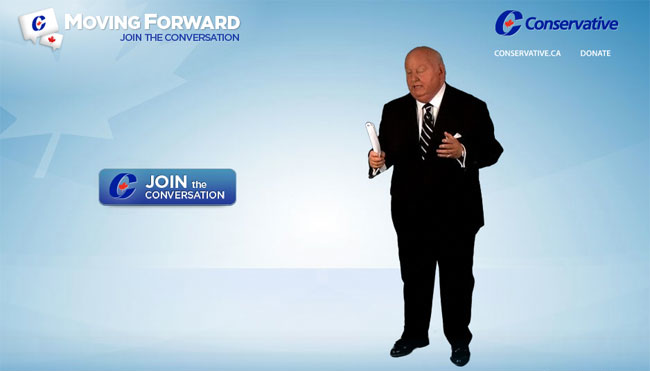
These ads might seem like historical curiosities, but they go to the very heart of why the Senate spending scandal blew up in the first place.
“Duffy told me he was appointed to [the Senate] to fundraise and — as he put it — bring a friendlier face to the hard-edged Conservative Party,” says Dan Leger, a former parliamentary reporter and Halifax-based author of the 2014 book Duffy, who interviewed the senator. “So they would have a fundraiser in Upper Moose somewhere and the ‘Old Duff’ would come in and tell his stories and entertain the grassroots.”
In fact, how Duffy even ended up in the Senate goes back to a fateful decision Harper made in the fall of 2008 when he was facing the gravest threat to his reign as prime minister. While he’d bested Stéphane Dion in the election that October, he was still saddled with a minority government. Now the Liberals, NDP and Bloc were threatening to cobble together a coalition to topple the government and end Harper’s rule.
Harper moved quickly to head off this threat by proroguing parliament. But he also realized the Senate would likely rubberstamp any coalition that could be assembled. After all, in the nearly three years he’d been prime minster, Harper had refused to replace senators who’d retired. Consequently, the Senate was still controlled by the Liberals.
To put an end to this threat, three days before Christmas of 2008, Harper announced the appointment of 18 senators. “It was the largest single sweep of Senate appointments in one day going back to Sir John A. Macdonald who, after all, had to appoint an entire Senate,” observes Leger. “It was a massive and… extremely rare event that you would name that many people to the Senate all at once.”
Today, as the Senate scandal threatens Harper’s grasp on power, some observers are puzzled at how he could be brought down by an institution he held in such contempt.
“What mystifies me is why [the Conservatives] haven’t taken the same position of the New Democrats – which is to abolish it,” wonders Aaron Wudrick, federal director of the Canadian Taxpayers Federation, an organization that wants the Senate eradicated. “If anyone has a reason to do it, it would be this prime minister. It's been the single biggest millstone around his neck. And yet they continue to shy away from taking it on head on.”
The answer lies in the events of 2008, when it dawned on Harper how useful the Senate could be in his quest of retaining power and creating a permanent ruling Conservative juggernaut.
“I think Stephen Harper has been very clear… he wanted to put in place a strong Conservative organization that would displace the Liberals,” says former Tory MP Patrick Boyer, a candidate for the Conservatives in the 2008 election and author of Our Scandalous Senate, a recent book about the Senate.
“I think that's what happens to people who get into office after a while: the zeal is gone and they adjust to the comfort of what’s there… The vested interests soon cluster around… [Harper] kind of got seduced by the benefits [of the Senate] and that outweighed his ability to make the changes he talked about.”
The kinds of benefits to which Boyer refers can be seen by reviewing Harper's appointees, which included Duffy, Pamela Wallin, Patrick Brazeau and Irving Gerstein (chair of the powerful fundraising arm of the party, the Conservative Fund Canada) – all of whom played a part in the Senate spending scandal.
They were appointed to achieve a dual purpose: first, keep the party’s coffers full; second, keep the faithful in the small towns and suburbs voting Tory.
In fact, a closer examination of the Senate scandal reveals that Mike Duffy was a mere pawn in a much grander scheme set into motion by Harper himself.
“I think that reflects the route of the evolution of the Conservative Party since Reform where it was a principle-based party… and then Stephen Harper gets in, he looks about pragmatic power bases and as such realizes after he's elected… that he could use the Senate,” explains Michele Austin, a former Reform Party staffer, early supporter of Harper’s and former chief of staff for two of his cabinet ministers.
“So it becomes more about Stephen Harper using the Senate to get his agenda through than about the party and principles.”
Harper sees Senate as useful to his ambitions
It’s safe to say the Senate scandal would never have happened if Harper had stuck to his roots as a Reform Party activist. As a right-wing protest movement, and motivated by the belief Western Canada was getting shafted by the eastern political establishment, the Senate was among the Reform Party’s biggest grievances.

“Ontario and Québec had twenty-four senators each – while Alberta, BC, Saskatchewan, Manitoba had a total of twenty-four senators,” points out Deb Grey, the former Reform Party MP and, until recently, interim chair of the Security Intelligence Review Committee (SIRC). The Reform Party’s solution was the Triple E Senate – one that was elected, would reflect the provinces equably, and would be effective.
With 105 senators being paid $138,700 a year, and at an annual cost to taxpayers of $100-million, the Canadian Senate is a political anachronism. After all, it has no real power and usually no profile.
But as Boyer points out, “prime ministers find it very helpful to have this place down the hall where cabinet ministers who have become embarrassments or party organizers they want close at hand – they can take them and just put them in there… In theory, it's a public institution. In practice, it's being run like a private club for two political parties.”
Indeed, Liberal and Tory prime ministers since Confederation have found the Senate a convenient place to park their bagmen and functionaries on the public tab.
Warren Kinsella, a long-time Liberal election consultant, explains that senators even keep the parties operating when they’re periodically wiped out at the polls. “It's the Senate caucus that keeps you alive,” he notes. “In that context, it has value.”
Thus, senators like Keith Davey, appointed to the Senate by Lester Pearson at age 39 in 1966, was a critical player in overseeing the Liberal Party’s electoral fortunes for almost two decades before Brian Mulroney was elected in 1984. More recently, Jean Chrétien appointed long-time Liberal strategist David Smith to the Senate in 2002, who worked on both Chrétien and Dion’s election campaigns.
The Senate also became notorious for its deadbeats. One of the most infamous was Andrew Thompson, a Liberal appointed in 1967 who stopped showing up to work altogether, having moved to Mexico— but who continued to collect his paycheque.
In 1998, the Reform Party hired a Mexican mariachi band and trooped through the Senate lobby in full song, handing out burritos to lampoon his absence. Thompson resigned, although his Senate pension immediately kicked in, which was almost as large as his former salary.
This sort of behavior ticked off the Reform Party, including Harper. In 1996, as a Reform MP, he railed in the House of Commons that “[Canadians] are ashamed the Prime Minister continues the disgraceful, undemocratic appointment of undemocratic Liberals to the undemocratic Senate to pass all-too-often undemocratic legislation."
In 2004, Harper said “Despite the fine work of many individual senators, the upper house remains a dumping ground for the favoured cronies of the Prime Minister."
And during the 2006 election, the Tories' website claimed “a Conservative government will not appoint to the Senate anyone who does not have a mandate from the people.”
Harper quickly broke that promise. Having won no seats in Quebec during that election, he appointed Montreal lawyer Michael Fortier to his cabinet and the Senate.
Still, Harper was fearful that trying to abolish the Senate would embroil him in a constitutional quagmire. After he became prime minister in 2006, his approach was to refuse to fill vacant seats and introduced, on three occasions, legislation to reform it. But these bills all died on the order papers.
Today, Duff Conacher, the founder of Democracy Watch, an Ottawa-based civil liberties organization, feels that Harper was never serious about reforming the Senate and introduced bills that he knew were unconstitutional. Says Conacher: “He wanted to use it as a wedge issue and send out numerous fund-raising letters saying Liberal senators were blocking efforts to make it equal, elected and effective.”
Indeed, Liberal Senator Percy Downe points out that Harper “had a majority in the Senate [by 2009] so he could have passed whatever bill he wanted. The fact he never passed one speaks volumes. They had a majority, where were the bills they passed? They blamed it all on everybody else.”
Tories embrace Senate as fundraising machine
If Harper’s attitude prior to 2008 was benign neglect, that soon changed. In particular, he was convinced by people such as Conservative senator Marjory LeBreton of its uses – specifically as a vehicle to raise cash for the party.
Indeed, the fundraising laws had changed since the Chrétien years. Parties could no longer solicit large donations from corporations and unions; instead, they had to beg from individual donors.
“In the days when corporate donations were more important to political fund-raising, a senator would sit in his office in Ottawa and check in with his friend at the bank [for a donation],” says Leger. “So the practice of fundraising had changed and the Conservatives by far had perfected it.”
Indeed, lacking corporate donors, the Tories had created a sophisticated direct-mail fundraising operation that taps into the pockets of 100,000 party members across Canada. It’s a machine run by Irving Gerstein, a Toronto-based business executive who’s been fundraising for the Tories since John Diefenbaker was party leader.
Gerstein was once described by Harper’s former chief of staff Ian Brodie, as “the single best political fundraiser any party in Canada has ever had. I literally don’t know what Mr. Harper would do without him.”

Indeed, the Conservative Fund Canada, which Gerstein manages, has been a fundraising monster: between 2005 and 2012, the Tories raised $145-million at the national level, compared to just $40-million by the NDP during the same time period. In fact, the Tories often raise more money than the opposition parties combined, and this is why their war chest is so large going into this election.
But to get all of those little donors to hand over their $1,000 cheques, Harper and Gerstein no longer needed well-connected Bay Street lawyers or corporate executives: they needed celebrities who could travel to the boonies to wow small town locals in obscure ridings.
“They had to rely on more people like Pamela Wallin and Mike Duffy to do the back roads and shake hands and get pictures taken with the faithful,” says Leger.
Adds Patrick Boyer: “These people that were celebrities couldn't stay out of the news as they were already in the news. And initially that pleased the prime minister because it brought more people to the party and brought additional money to the party.”
Harper clearly had no qualms about taxpayers footing the bill for the salaries of what were little more than Tory foot soldiers and party functionaries – in contrast to his complaints from earlier days about the Senate.
In total, since 2008, Harper has appointed nearly 60 senators. Along with Duffy, Wallin, Brazeau and Gerstein in 2008, Harper also added former Olympic skier Nancy Greene, and Linda Frum, daughter of former CBC star Barbara Frum and brother of David Frum.
More importantly, he appointed Doug Finley, his long-time “pit bull” election strategist and director of political operations, as well as his loyal press secretary, Carolyn Stewart-Olsen, and Don Plett, president of the Conservative Party of Canada.
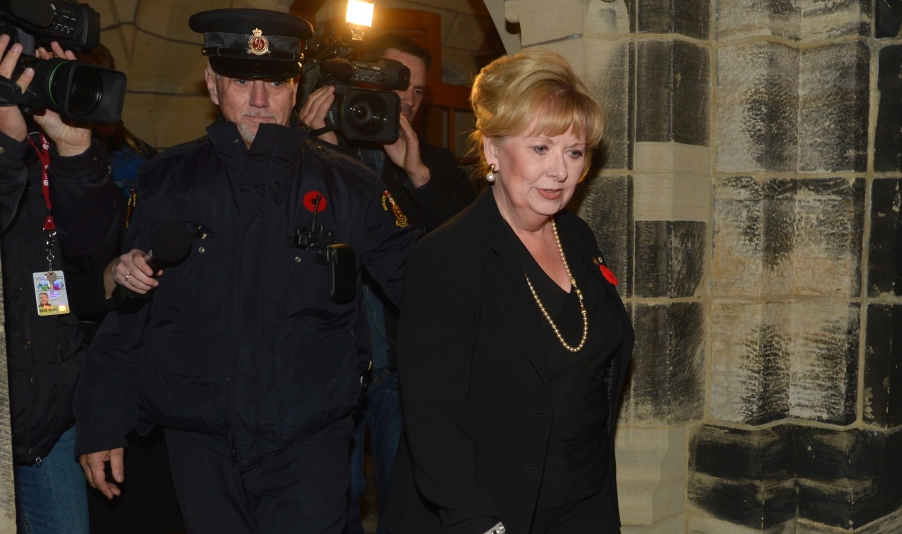
The cynicism of such appointments is reflected in the cases of Finley and Gerstein, both of whom were fingered as key participants in the “in and out” scandal that occurred during the 2006 election.
Having reached their $18.3-million spending limit, the Conservatives transferred $1.3-million to 67 ridings, which then funneled it back to the national party to then spend on advertising – a method to circumvent the spending laws.
In 2011, Gerstein, Finley and two other members of the party were charged for their involvement in the scheme – and the party forced to repay $230,198 and $52,000 in fines.
During the investigation into this affair, it was revealed that Finley wrote to Gerstein asking for authorization to go ahead with the plan in order to “run a major slam dunk in the extra two campaign weeks” over their rivals, according to the agreed statement of facts in the case.
Meanwhile, Harper began using the Senate to reward failed candidates: in 2011, he reappointed Larry Smith and Fabian Manning to the Senate after both stepped down to run in the election that year but lost at the polls.
In 2010, Harper also appointed Don Meredith, a Pentecostal pastor, who has since been accused of starting a sexual affair with a 16-year-old and of engaging in workplace sexual harassment and bullying.
Duffy becomes celebrity Tory fundraiser
Yet the appointments of Duffy and Wallin were paying off for the Tories, as both served as glamorous draws to party events.

Duffy, in particular, was in hot demand, bringing his folksy “Old Duff” persona to the task. His diaries show little evidence of engaging in Senate legislative work but constant appearances at riding associations and fundraisers. He frequently travelled with Harper during the 2011 election campaign, acting as a master of ceremonies during one event in St. Catherines that raised $100,000. He also taped robocalls, ads and hosted teleconference town halls.
John Duncan, the Tory government whip and former cabinet minister, invited Duffy to speak at a fundraiser for 120 members of his riding association on Vancouver Island in June of 2009.
During Duffy’s trial, Duncan testified that:
“The message was that he came, that he spoke well and that people really enjoyed his conversation, his jokes and his talk. A lot of my constituents and party members were quite interested because they'd watched Mr. Duffy on his [TV] show ... so there was a pretty high level of interest in meeting with him.”
That same year, Duffy attended a fundraising event in support of Pierre Lemieux, candidate for an Ontario riding that had been a Liberal stronghold. Duffy was the star attraction at a $100-a-plate dinner, which also boasted Highland dancers and a screen flashing pictures of Stephen Harper, former Ontario premier Mike Harris, and other prominent Tories.
All told, one estimate suggests that Duffy helped raise as much as $2-million for the Conservatives. “There was no pretense that Mike Duffy or Pamela Wallin would be sitting in committees fine-tuning amendments to legislation,” says Boyer.
“Their job was to be out there, as they always were, in front of cameras and in front of big and small audiences. It was the same with Patrick Brazeau. He was a leading light and big star for all the off-reserve Indians in Canada that actually outnumber the on-reserve aboriginal people.”
Taxpayers foot the bill
Thus, by 2013, when the spending scandal broke open, the Senate had been transformed into a wing of the Tory party’s fundraising and election apparatus. As former Harper cabinet minister staffer Michele Austin observes: “Definitely, there was an evolution there... And so the aversion to the Senate slowly melted away as we gave them more structured things to do.”
What’s also clear is the Tories followed the Liberals’ tradition of abusing Senate privileges and its slipshod accounting rules. All of the investigations show that senators like Wallin and Duffy were having taxpayers subsidize their work for the Tory party.
For example, during a 2009 five-day visit to the west coast where he spoke to John Duncan’s riding association, Duffy billed $6,479 to the Senate. RCMP Corporal Greg Horton, who led the investigation into the senator’s spending habits, wrote: “I believe that Senator Duffy has demonstrated a pattern of filing fraudulent expense claims,” in a June 2013 report.
“He has submitted expense claims for Senate business to cover travel costs during the federal election campaign, and filed per diem claims for being in Ottawa for Senate business on days when he was actually campaigning in other parts of the country.”
During the 2011 election campaign, Duffy travelled to the Maritimes to campaign for the party while claiming he was on Senate business, and billed $2,374 to the Senate. Another trip to PEI to stump for the Tories during the same time period he expensed to the Senate for $3,573.
Meanwhile, Pamela Wallin was doing the same thing. Wallin billed the Senate to cover her costs to go to a fundraiser for Conservative MP Mike Wallace in 2010, while also attending a board meeting for the investment firm Gluskin Sheff + Associates Inc. where she was a director.
“They started off on one ethical foot and have ended up on quite another,” notes Leger. “I just don't know whether it's inevitable when a government’s been in power for a time, or governments have a few bad apples and there are always people going to take advantage of the system.”
The cover-up begins and goes awry
Once questions arose three years ago over whether senators were using taxpayers’ funds to pay expenses for homes where they didn’t actually reside, the record shows the Conservatives went into cover-up and damage control mode.
Nigel Wright, as Harper’s chief of staff, felt it was his duty to take on the task. As Boyer says: “The Conservative Party, because things are starting to hit the fan, and they are trying to avoid it hitting the prime minister – that's why the PMO is working so hard to contain it and make it go away.”
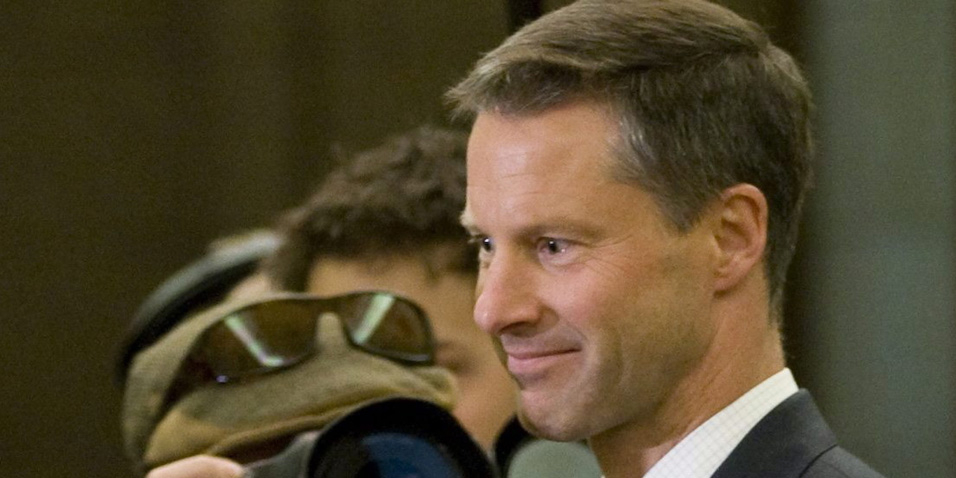
The cover-up involved various moving parts. In February 2013, after Harper instructed Duffy to pay back some of the money, Wright met with Senator Irving Gerstein and it was agreed the Conservative Fund would cough up $32,000 to pay Duffy’s overbilled expenses (Duffy said he didn’t have sufficient funds to pay it himself).
But when it was revealed the sum was in excess of $90,000, Gerstein backed out, although he and the party’s lawyer, Arthur Hamilton, agreed to shell out $13,000 to cover Duffy’s legal fees.
Wright then decided, apparently, to pay the $90,000 out of his own pocket.
But that was not the only problem. By then, Duffy, the PMO and Tory senators sitting on the powerful Internal Economy committee were worried about the audit the Senate had commissioned into Duffy’s residency issues. Emails show how Wright and other PMO staffers, along with Gerstein, Marjory LeBreton and Carolyn Stewart-Olsen, conspired to try and kill the audit.
Their argument was that now that Duffy had paid back the $90,000, there was no longer any reason for the audit to proceed, which was being carried out by Deloitte.
By March of 2013, Senator Gerstein had been dispatched by Wright and the PMO to talk to Deloitte’s Ontario managing director, Michael Runia, to see if the audit could be killed. Deloitte was the auditor for the Conservative Party and Gerstein knew them well.
“The stage we’re at now is waiting for the Senator’s contact to get to the actual Deloitte auditor on the file to agree,” wrote Wright on March 8, 2013 to his colleagues in the PMO. “The Senator will call back once we have Deloitte locked in.”
While this was going on, Wright was negotiating with Duffy’s lawyer to determine so-called “media lines” that would be followed to keep everyone on message to mitigate public damage.
But things did not go as planned. Runia failed to persuade the Deloitte auditor assigned to Duffy’s case to shut the audit down. “I have been on the phone constantly with Gerstein who has been trying to arrange the necessary commitments from Deloitte but to date he hasn’t been able to receive those assurances,” wrote Patrick Rogers, a PMO staffer to Wright and Ray Novak, Harper’s current chief of staff, on March 20, 2013.
When it became evident they couldn’t kill the Deloitte audit, there was an effort to censor it. With pressure from the PMO, this scheme was carried out by two Tory senators on the Senate’s Internal Economy sub-committee – chair David Tkachuk and Harper’s former press secretary, Carolyn Stewart-Olsen.
After the Deloitte report was finished in late April, the Senate administration drafted a report based on its findings – a report critical of Duffy. Stewart-Olsen and Tkachuk then altered this report, removing critical comments. Stewart-Olsen was in constant contact with Wright and PMO staff during this period.
On May 9, the Deloitte audit was released. With Duffy refusing to co-operate with the auditors, and the Senate rules on residency being unclear, the Deloitte auditors felt it was impossible to conclude whether he had actually done anything wrong. On the same day, the Internal Economy’s subcommittee released a report of its own which reiterated Deloitte’s conclusions.
But these schemes quickly unraveled when it leaked out that Wright had paid the $90,000 himself and the Senate report had been altered. Wright dutifully resigned. But the fact that neither Wright nor Gerstein has been charged with any infraction has not gone unremarked.
“If [Wright] did nothing wrong, why did he resign?” asks Duff Conacher. “So all of the evidence we know points to him acting corruptly. Gerstein was doing the same, he was intervening in the [Deloitte] audit. If that's not acting corruptly, I don't know what is.”
Wright’s emails indicate that on more than one occasion he informed Harper about their plans to deal with the Duffy matter – but the public may never know how much detail he gave the prime minister.
Nevertheless, to those who remain puzzled by why Harper never reformed or abolished the Senate – the answer lies in his realization of how it fit neatly into his ambitions to stay in office for a very long time.



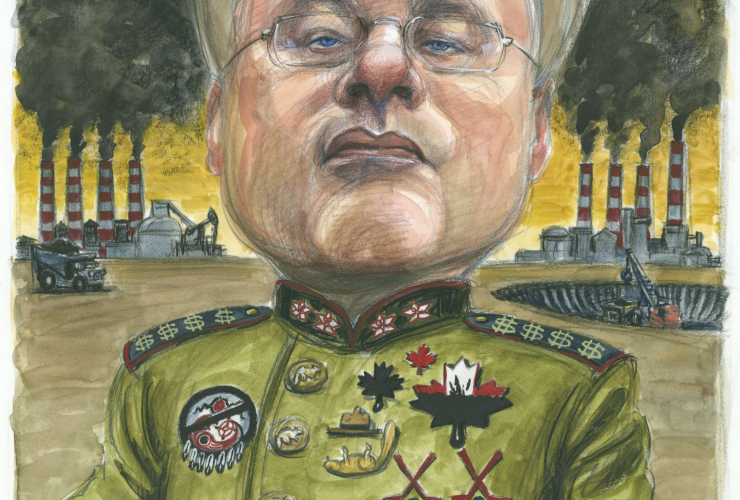
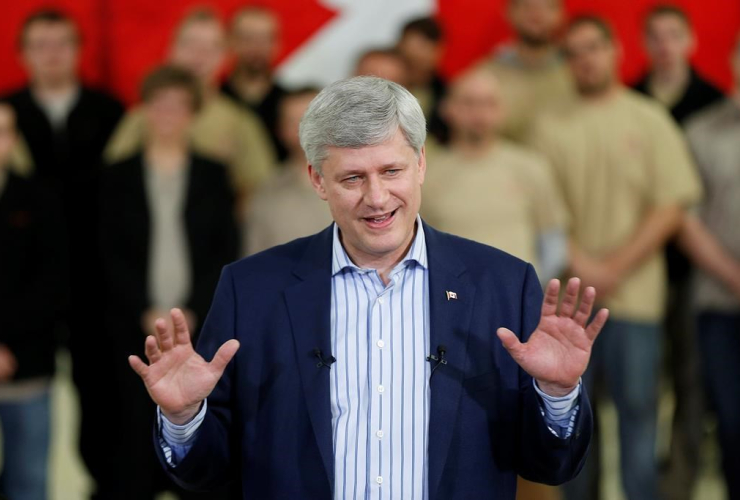
Comments